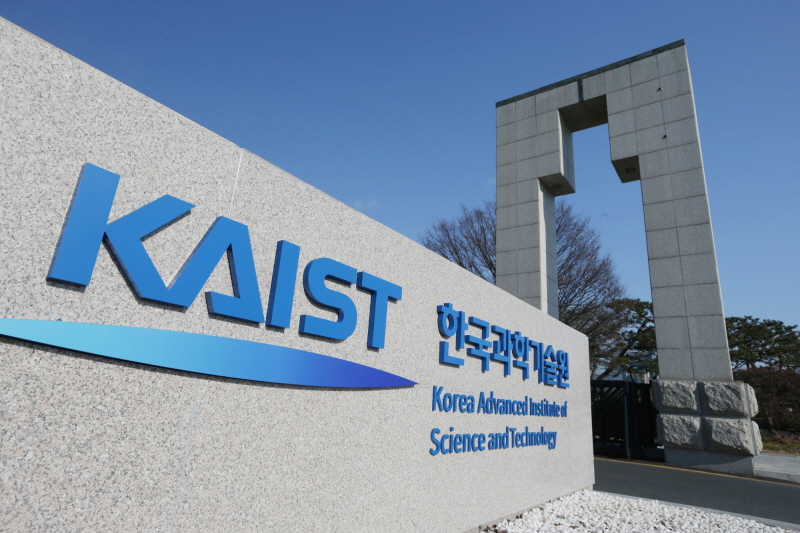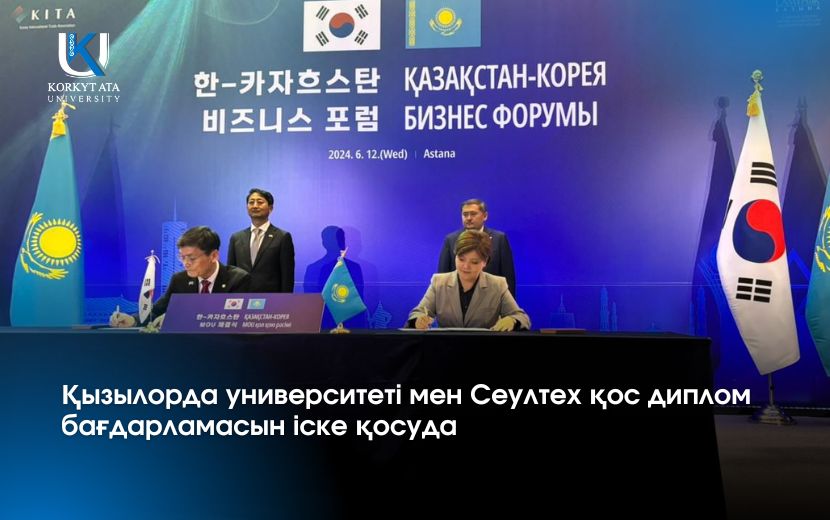Bridging Borders Through Education: How Korean Universities Are Transforming Opportunities in Kazakhstan
In recent years, Kazakhstan and Republic of Korea have grown closer—not just through trade or tourism, but through a future-focused connection: education. We’re entering a new era where learning isn’t confined by geography or language. It’s about collaboration, innovation, and equipping students with the tools to thrive in a globalized world.
This partnership goes beyond building campuses or launching joint degree programs. It’s about reimagining what higher education can become when countries work together as true partners. And what makes it truly inspiring are the stories behind it—students dreaming of launching start-ups, researchers tackling real-world challenges, and young people gaining access to world-class degrees—often without even leaving home.

A graduate student celebrates their achievement, holding their graduation cap in the air. (Photo credit: by Shutterstock)
Across Kazakhstan, Korean universities are opening doors for a new generation. From dual-degree programs to full-fledged university branches, these initiatives reflect a shared vision: one rooted in innovation, cultural exchange, and global learning.
QAIST: Kazakhstan’s Leap into the Future
One of the most exciting outcomes of this academic partnership is the upcoming Qazaqstan Advanced Institute of Science and Technology (QAIST) in Almaty—modelled after Korea’s prestigious KAIST (Korea Advanced Institute of Science and Technology). Ranked among the top 60 universities globally, KAIST is known for its leadership in artificial intelligence, robotics, and green technologies.

A view of Korea Advanced Institute of Science and Technology (KAIST) (photo credit: by official KAIST univerity's website)
Set to open in 2026, QAIST aims to be more than just another university. It’s envisioned as a high-tech hub, nurturing the next generation of scientists, engineers, and innovators. Developed in collaboration with Korean and Kazakh institutions, including Satbayev University, QAIST is a model of true academic co-creation.
What’s truly remarkable is how QAIST is being designed. It’s not about simply importing a Korean educational model—it’s about blending the strengths of both countries. Korean professors and Kazakh scholars are co-developing a curriculum that speaks both languages, literally and culturally.
The academic focus is razor-sharp: smart energy, artificial intelligence, robotics, and materials science. These are fields critical to Kazakhstan’s future, and QAIST will offer not only a solid academic foundation but also serve as a research center for rare earth metals processing—an industry vital to global tech development.
Located in Almaty, Kazakhstan’s industrial and cultural capital, QAIST will be strategically placed to foster collaboration between academia and industry. It’s designed to prepare students for real-world challenges and high-impact careers—without having to go abroad. “When I heard that QAIST was opening here in Almaty, I couldn’t believe it. I’ve always dreamed of studying at a Korean university, but going abroad felt too far. Now, I can pursue that dream right here, without making my parents worry about my safety,” shared a final-year high school student in Almaty on their social platform.
SeoulTech and Korkyt Ata: Dual-Degree Program
Another standout example of this deepening academic partnership is the dual-degree program between Seoul National University of Science and Technology (SeoulTech) and Korkyt Ata Kyzylorda University. Launching in 2025, this unique initiative will offer programs in artificial intelligence, computer engineering, and cybersecurity.
What sets it apart is its structure: students will spend four semesters in Kazakhstan and four in Korea, with courses taught in English and Korean. Graduates will receive diplomas from both universities, combining the strength of Kazakh foundations with Korean innovation.
This dual-campus approach gives Kazakh students access to advanced academic environments and opens doors to employment opportunities in Korea, including post-graduation work visas. “The SeoulTech and Korkyt Ata dual-degree program is giving me two things at once—a solid education in computer science and a chance to experience Korea firsthand,” shared a second-year student from Kyzylorda. "I never thought I’d get to study abroad, let alone earn two degrees.”

SeoulTech President Kim Dong-hwan and Korkyt Ata University President Karimbayeva Baibutkul sign a dual-degree agreement during the Korea–Kazakhstan Business Forum held on June 12, 2024, in Astana (photo credit: by the official website of Korkyt Ata University)
During a recent bilateral meeting, Kazakhstan’s Minister of Science and Higher Education Sayasat Nurbek highlighted that welcoming international universities is a cornerstone of the country’s goal to become a regional hub for higher education. Meanwhile, Korea’s Vice Minister Oh Seok Hwan expressed confidence in Kazakhstan’s academic potential, emphasizing that the country’s structured and forward-thinking approach makes it a strong leader in Central Asia’s educational landscape.
As part of this vision, both sides also agreed to launch scientific internships for Kazakh researchers at leading Korean universities and laboratories, expanding the partnership beyond students and into the realm of collaborative research and innovation.
A New Chapter in Global Learning
The growing collaboration between Korean and Kazakhstani universities is a gateway to global opportunity, right at home. I believe that this kind of collaboration allows students to grow at their own pace. Instead of being thrown into a new country and a completely different culture all at once, students can gradually become more independent while staying close to the support of our families.
By creating such pathways to world-class education without crossing borders, these initiatives are empowering a new generation of students to dream big, think globally, and act locally. Whether it’s through advanced research at QAIST or dual-degree programs like the SeoulTech–Korkyt Ata partnership, Kazakhstan is fast becoming a hub for innovation, knowledge exchange, and cultural connection.
How about this article?
- Like0
- Support0
- Amazing0
- Sad0
- Curious0
- Insightful0


